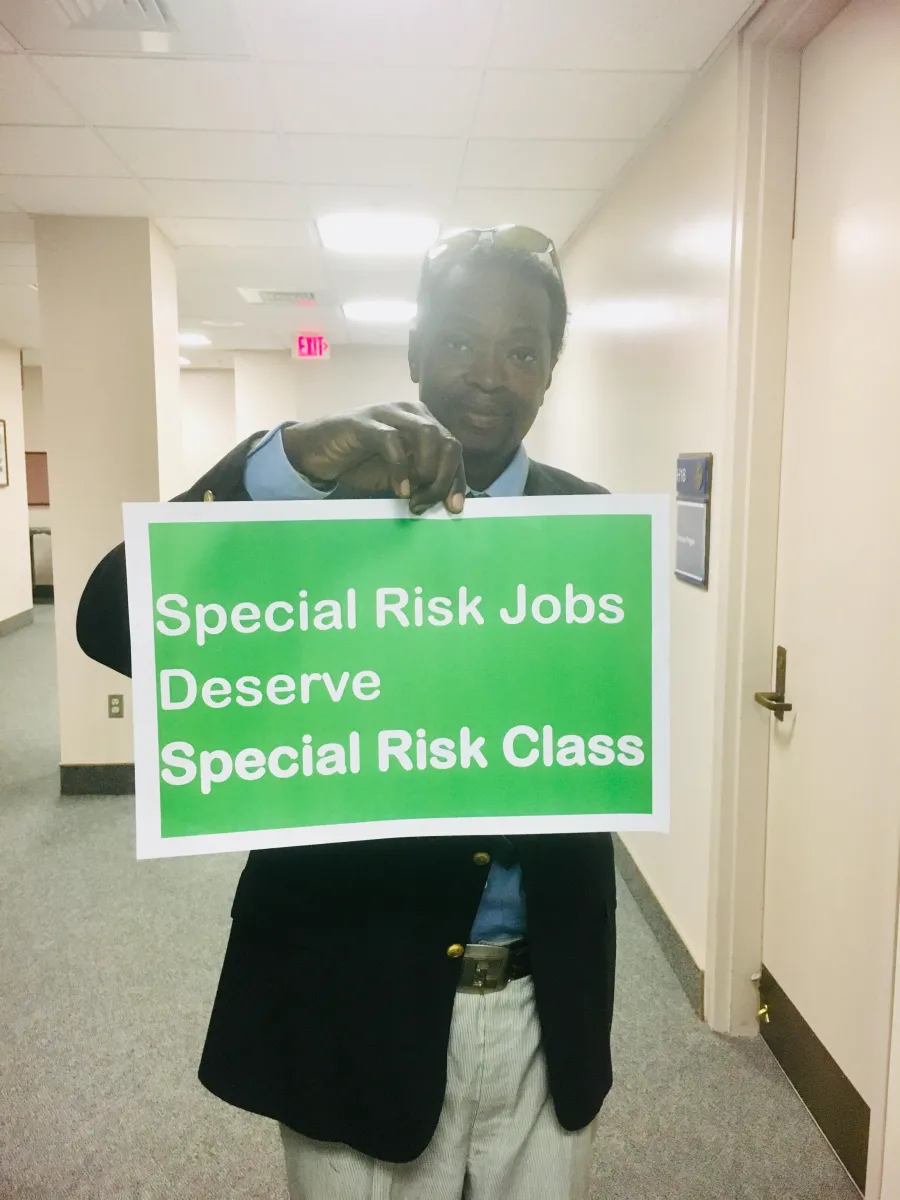State Hospital Workers Converge on Capitol to Demand Special Risk Classification

For two decades, the dedicated employees at Florida's State Mental Hospitals have tried to convey to lawmakers the perilous nature of the work they do day in and day out. These tireless public servants work directly with individuals found not guilty by reason of insanity or who have been found to be a danger to themselves or to others. Caring for and providing a safe environment for these patients is highly demanding, dangerous, and physically exhausting work. This is evidenced by the multiple incidents of assault these workers have been subjected to through the years on the job. From being kicked, punched, and bitten, to being spat and urinated upon, these workers have dealt with it all--and all of it with a high degree of patience and professionalism.
For far too long these Human Services Workers and Patient Care Technicians that comprise the backbone of State Mental Facilities have labored in the shadows performing the unglamourous work that keeps the people of Florida safe. For over 20 years, they have sought recognition for the traumatic work they perform through the State of Florida Retirement System's Special Risk Classification. Until this year, those attempts were to no avail.
After two decades of waiting, the concerns of these workers finally got a hearing due to the diligent work of AFSCME Florida members during the 2019 Legislative Session. Representative Vance Aloupis and Senator Manny Diaz Jr. sponsored a bill that would add workers at these facilities to the Special Risk Classification affording just protections, higher compensation, and potential for early retirement for those on the front lines. HB 803 would reclassify nearly two thousand workers who perform services for individuals who have a mental illness and are involved with the criminal justice system at Northeast Florida State Hospital in Macclenny, North Florida Evaluation and Treatment Center in Gainesville, Florida State Hospital in Chattahoochee, and the Sunland Center in Marianna. They would join law enforcement, firefighters, and employees at correctional facilities who are already classified “Special Risk” and perform work similar in nature.
"It's important to understand the serious circumstances these individuals work under," said the bill's House sponsor Representative Aloupis. They put themselves in danger every day just by going to work. The stories are horrendous. Workers have been stabbed with scissors or beaten close to death. This bill has been long coming."
On Monday, several workers from Chattahoochee State Hospital and the Sunland Developmental Disabilities Center in Marianna travelled to Tallahassee to tell their stories. "Our job is to treat the residents with dignity and respect," Chattahoochee worker Jasper Laster told reporters attending the hearing. "All we want is the same thing."
Donald Bailey, a 27 year veteran of the Sunland Center in Marianna has been assaulted numerous times through the years while performing his job. "Just two years ago my own two front teeth were knocked out. I've had chairs thrown, tables thrown. I'm in the trenches daily. This work is extremely hazardous. Without a doubt, we deserve Special Risk designation."
The bill was heard for the first time on Monday in the House Subcommittee on Oversight, Transparency, and Public Management. Representative Aloupis asked the committee for an actuarial study so that legislators can have a clear understanding of the numbers involved with the Bill.
"We'll be bringing this bill back to the House," said Rep. Aloupis. "It's the right thing to do."
Dr. Martin Luther King said that justice too long delayed is justice denied. It's time for legislators to correct the miscarriage of justice endured for decades by workers who spend their days in the bowels of our state forensic mental institutions.
Check out News Reports on HB803 Special Risk Bill:
WTXL: Benefits could be coming to Florida workers who work with criminally committed mental patients
